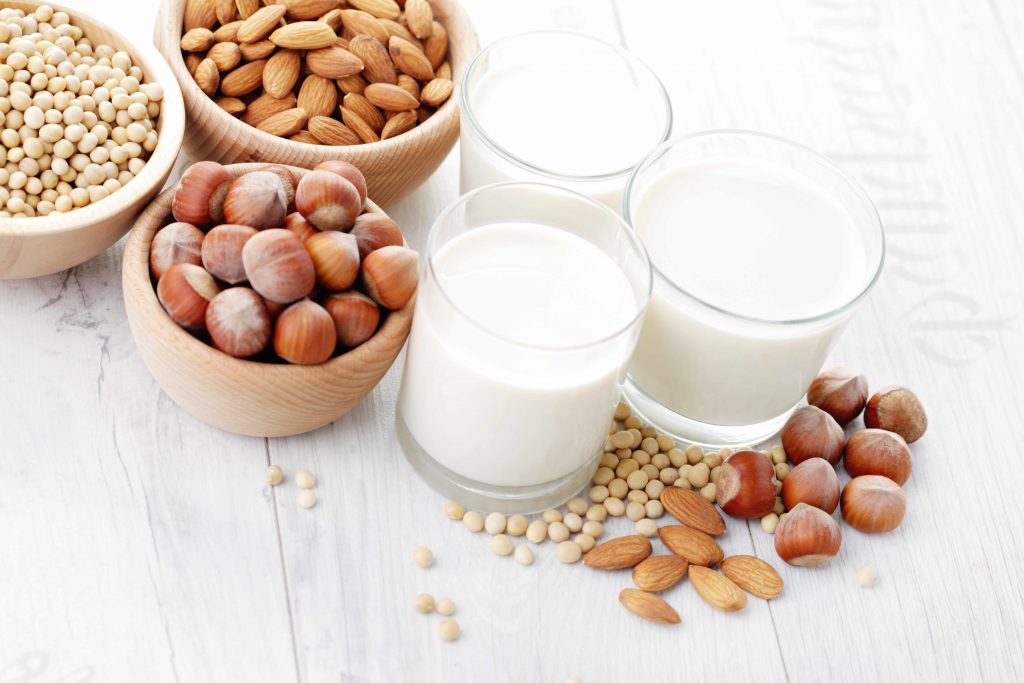How healthy is plant-based milk?
Dec 22, 2024Explore the health benefits and nutritional profiles of various plant-based milk alternatives, including soy, almond, oat, and more. Learn how to make informed choices for a balanced diet.
Plant-based milk alternatives have surged in popularity, becoming a staple in many households. Whether driven by dietary restrictions, ethical considerations, or simply a desire for variety, many are now seeking to understand the health implications of these non-dairy beverages. This article, drawing from a variety of sources, aims to provide a comprehensive look at the nutritional landscape of plant-based milks and answer the question: How healthy is plant-based milk?
Understanding Plant-Based Milk Health
The rise of plant-based milk is undeniable, with options ranging from soy and almond to oat and hemp. These beverages are essentially water-soluble extracts from various plant sources, processed to resemble cow's milk in appearance and texture. They are produced by reducing the size of the raw material, extracting it in water, and then homogenizing the mixture. While they offer an alternative to dairy, it’s crucial to understand that their nutritional profiles can differ significantly.
Reasons for Choosing Plant-Based Milks
Consumers opt for plant-based milk for various reasons:
- Medical reasons: Cow's milk protein allergy (CMPA) and lactose intolerance (LI) are significant drivers.
- Lifestyle choices: Veganism and other dietary preferences contribute to the demand.
- Environmental and ethical concerns: Some individuals choose plant-based options to reduce their environmental impact or for animal welfare reasons.
Nutritional Aspects of Plant-Based Milk
It's important to recognize that plant-based milk is not a monolithic category. Each type has its unique nutritional characteristics, influenced by the plant source, processing methods, and any fortifications.
Key Nutritional Considerations
When evaluating the health of plant-based milk, consider these factors:
- Protein: Soy milk tends to be the closest to cow's milk in protein content, while almond milk is significantly lower.
- Fat: Plant-based milks generally have less saturated fat than cow's milk, with many containing beneficial monounsaturated and polyunsaturated fats.
- Calcium: Many plant-based milks are fortified with calcium to match the levels in cow's milk, though the body may not absorb it as efficiently.
- Added Sugars: Unsweetened varieties are preferable to avoid added sugars, which can vary greatly across brands.
- Vitamins and Minerals: Fortification with vitamins like B12 and D is common, especially for those following vegan diets.
- Fiber: Oat milk stands out for its fiber content, which can help with cholesterol and blood sugar management.
Popular Plant-Based Milk Options: A Detailed Look
Let's delve into the specifics of various plant-based milk options:
Soy Milk
 Credit: newsnetwork.mayoclinic.org
Credit: newsnetwork.mayoclinic.org
Soy milk, made from ground soybeans or soy protein powder, is a good source of protein, often containing more than other plant-based alternatives. It's frequently fortified with calcium and vitamin B12, making it a strong contender for those seeking a dairy milk alternative.
Almond Milk
Almond milk, made from ground almonds, is lower in calories and saturated fat compared to dairy milk. However, it’s typically very low in protein, unless protein is added in processing. Look for calcium, vitamin B12 and vitamin D fortified varieties when choosing almond milk.
Oat Milk
Oat milk is made by blending oats and water. It's known for its creamy texture and is a good source of fiber, particularly beta-glucan, which may help reduce cholesterol. Oat milk is naturally sweet due to its higher carbohydrate content, and it is important to note that it is not gluten-free.
Rice Milk
Rice milk, made from milled brown rice and water, is allergen-free, making it a good choice for individuals with allergies. However, it is lower in protein and not recommended for infants. Choose a protein and calcium fortified option when selecting rice milk.
Macadamia Milk
Macadamia milk, made from soaked macadamia nuts, is naturally low in protein and calcium. It has a creamy texture and can be fortified with vitamins and minerals, improving its nutritional profile.
Pea Milk
Pea milk, made from pea protein, has a similar protein content to dairy milk. It is a newer option on the market but holds promise as a nutritionally sound alternative.
Hemp Milk
Hemp milk, made from hemp seeds, is a good source of omega-3 fatty acids. It is often fortified with calcium, vitamin B12, and vitamin D, making it a better choice for those seeking a dairy milk substitute.
Coconut Milk
Coconut milk, made by diluting coconut cream with water, is higher in saturated fat than other plant-based milks and lower in protein and carbohydrates. Select a calcium-fortified option if using it as a dairy alternative.
Plant-Based Milk and Specific Health Concerns
The question of plant-based milk health extends beyond just nutritional content. Let’s consider some specific health concerns:
Gut Health
Research indicates that dairy consumption may increase the amount of helpful gut bacteria, but not necessarily the diversity. For plant-based milks, it’s essential to avoid those with added sugars and emulsifiers, which may cause inflammation in the gut.
Weight Loss
While some older studies suggested that low-fat cow's milk and added calcium could help with weight loss, simply adding milk to your diet is not a weight loss solution. However, substituting sugary beverages with plant-based milk could reduce added sugar intake.
Heart Health
Dairy products contain saturated fat, which can contribute to cardiovascular issues. However, recent studies suggest that moderate consumption of cow's milk may not negatively impact heart health. Many plant-based milk options are lower in saturated fat.
Making Informed Choices
When choosing a plant-based milk, consider these tips:
- Read the Nutrition Label: Pay close attention to the protein, fat, calcium, and added sugar content.
- Opt for Fortified Varieties: Choose milks fortified with calcium, vitamin D, and vitamin B12.
- Experiment with Different Types: Explore different plant-based milks to find the taste and consistency that suits your preferences.
- Consult a Dietitian: If you have specific nutritional needs or dietary restrictions, consult an Accredited Practicing Dietitian (APD) for personalized advice.
Conclusion: Is Plant-Based Milk Healthy?
The answer to the question, how healthy is plant-based milk?, is nuanced. There isn't a single "healthiest" option, as it depends on individual needs and preferences.
- Soy milk is often considered the closest plant-based alternative to cow's milk in terms of nutritional value, particularly protein.
- Many plant-based milks are lower in saturated fat and calories than cow's milk.
- However, the manufacturing process can strip away some beneficial compounds and add unnecessary ingredients.
Ultimately, a balanced diet that includes a variety of whole foods, along with careful consideration of individual nutritional needs, is the most effective approach to achieving optimal health. Plant-based milks can certainly be a part of this, provided they are chosen wisely and with an understanding of their specific nutritional profiles.
 Credit: dietitiansaustralia.org.au
Credit: dietitiansaustralia.org.au
This information is for educational purposes and should not be considered medical advice. Always consult a healthcare professional or registered dietitian for personalized dietary guidance. Content created by www.greendietlife.com.
 Credit: dietitiansaustralia.org.au
Credit: dietitiansaustralia.org.au

Credit: zoe.com
Jan 21, 2025
Explore the pros and cons of a plant-based diet, including health benefits, potential challenges, and tips for successful implementation. Learn about vegetarian, vegan, and flexitarian approaches.
Jan 20, 2025
Explore the latest research on plant-based diets and their powerful health benefits, including disease prevention, heart health, diabetes management, and cancer risk reduction.
Jan 16, 2025
Explore the nutritional landscape of processed fake meat, comparing them to traditional meat and whole plant foods. Learn about ingredients, health impacts, and making informed choices.